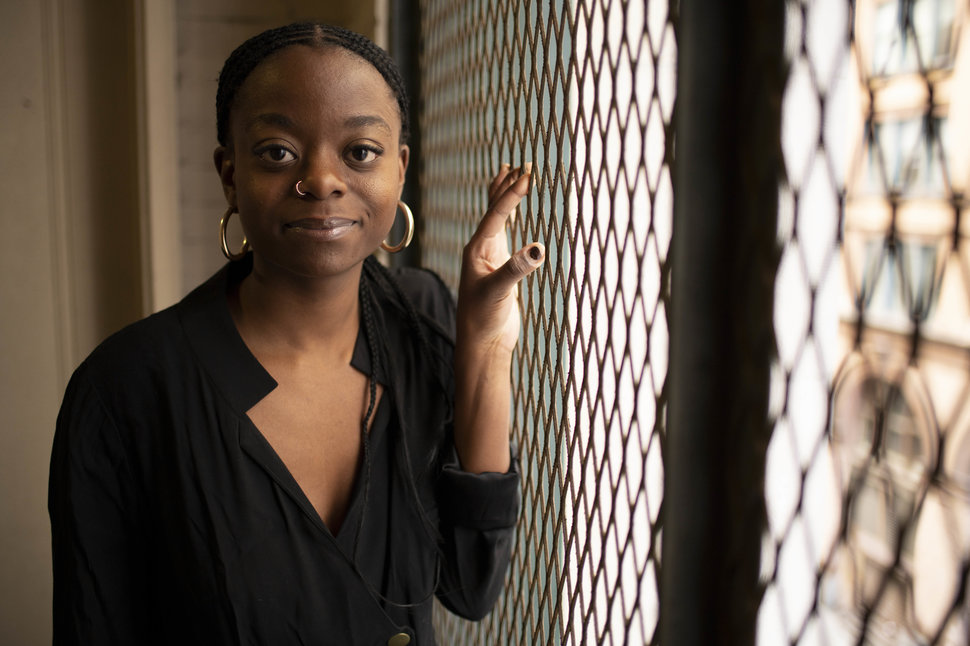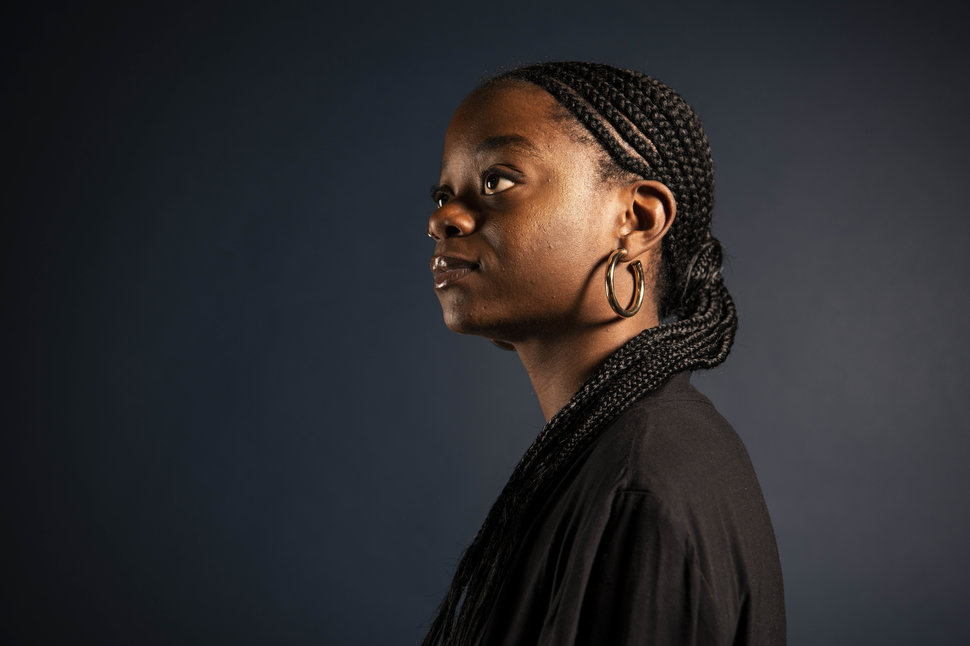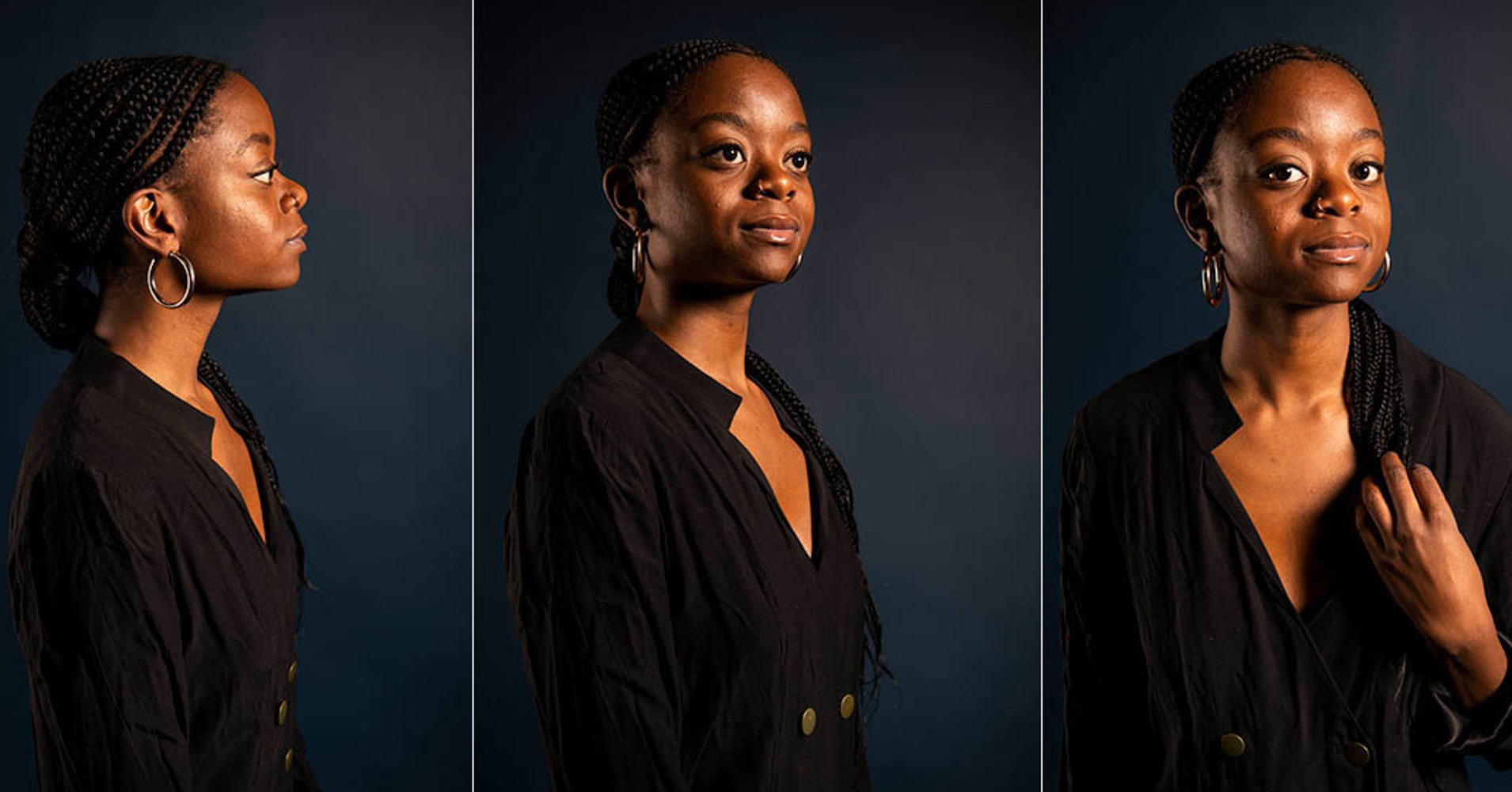[ad_1]
As Crystal Kayiza’s 14-minute film “Edgecombe” fades to black, a quote lingers on-screen for a few seconds. “What a life,” it reads.
It belongs to William “Wi” Joyner, an aged deacon at a historic Baptist church in predominately black Tarboro, North Carolina. He lived through the Jim Crow era, barred from using the water fountains and movie theaters designated for white people. Discrimination has defined his reality. Reflecting on it now, his eyes shift to the floor, and his lips tremble ― but he never raises his voice or loses his spirit. The horrors of the past help him unite the community through a shared belief in God and the sheer willingness to hope for a better tomorrow.
For Joyner, resilience in the face of adversity is the real American dream: “What a life.”
Kayiza met Joyner during one of two trips she took to Tarboro to make “Edgecombe,” a moving tone poem about the titular county. Practically everyone she encountered there suggested she meet Joyner, the ultimate Tarboro figure. When Kayiza finally did, she immediately understood why his presence around town has crowned him a local celebrity. One look at his hunched back and weathered face, and you know he’s a man who has been through it.
Dedicating a chapter of “Edgecombe” to Joyner christens Kayiza a promising new talent, someone with an eye for affecting stories. To watch the movie, which screened at last month’s Sundance Film Festival after being shown at festivals in Brooklyn, New Orleans and elsewhere, is to wonder where its 25-year-old director has been and where she is going. Her stylistic instincts ― using a dreamlike haze to capture a reality wherein the passage of time feels like a reverie ― are that good.
She got the idea to profile Edgecombe County when she was leaving the ACLU, where she worked as a legal assistant for two years after graduating from the film program at Ithaca College in 2015. Her stint with the ACLU concerned racial justice issues in the American South. Itching to return to her documentary-filmmaking ambitions, she asked an attorney she met from North Carolina to recommend a compelling region that would mirror her ACLU efforts. Tarboro, home to cotton plantations in the slave days, is a majority-black town; according to the Census Bureau, its median family income is just over $33,500.

“I wanted a more artistic or poetic exploration of blackness and what the African diaspora looks like in the United States,” Kayiza said at a Brooklyn coffee shop two weeks before going to Sundance. “I learned a lot by being in the legal and policy worlds, but I think there’s only so many ways to tell stories in that space.”
The North Carolina lawyer “knew someone who knew someone who knew someone” who owned a transition home for paroled convicts and others in need, she said. Through that connection, she met Shaka Jackson, a man under house arrest working two jobs to pay his legal fees and support his two young kids. He is the first person to appear in “Edgecombe”; his saga links the film to those of Joyner and other locals persevering in spite of limited income and limited advantages. In documenting their experiences, Kayiza can say she is doing exactly what she wants: “making films about black folks.”
“I’m so interested in the nuanced and varying ways that people experience being in a black body in this country,” she said. “I just don’t think we see enough variation of what that looks like.”
Kayiza, who has an unassuming aura and wide smile, is entering the industry at a time when America — portions of it, at least — is finally ready to engage with those experiences. The once-niche documentary genre enjoyed a commercial boom in 2018: More docs reached a coveted $10 million gross than in any other year in history. And when the Oscar nominations were announced last month, two of the Best Documentary Feature honorees — “Minding the Gap” and “Hale County, This Morning, This Evening” — were Sundance titles whose complex portraits of race and class inspired Kayiza. Her hope, then, is to leverage “Edgecombe,” which HuffPost selected as the winner of its annual Impact Award at the Nitehawk Shorts Festival, so she can make a feature-length nonfiction project that is both personal and sociological.
The personal aspect would stem from her family, specifically her father, who emigrated from Uganda to Harlem in 1997. Her mother, also a Ugandan native, joined him there. But raising kids in New York City is tough. When Kayiza was about 4, she and her mother and three siblings took a bus from Harlem to Tulsa, Oklahoma, where again her father was waiting to greet his family. She spent the rest of her childhood there, she said, attending a “very, very suburban” high school that nursed her budding documentary pursuit. They weren’t the only minorities there — Oral Roberts University, a Christian institution in Tulsa, attracts a lot of African immigrants — but she said she felt a certain unsettledness anyway.
“I think in those spaces, when you feel isolated in that way, it really pushes you to look outward, and that’s when you figure out the world is bigger than this town,” she said. “That pushes you to read and watch different things. I had both of my parents really, really push me — like, ‘We came here for you to have opportunities, and that means you should have access to anything that everyone else has.’”
After returning to New York for college, she made her first documentary short, “Why We Stay,” focusing on gentrification in the South Bronx ― a school project that eventually premiered on The Nation’s website. Compared with “Edgecombe,” it’s more of what she calls an “issue film.” But “Why We Stay” heralds Kayiza’s eye for narrative; she can adeptly straddle the blurry line between activist and storyteller.
“When I was in film school, I really struggled with what it meant to be a black filmmaker, knowing these are the types of stories I want to tell and wanting to define my own voice,” she said. “What does it mean to make things about black people? Does it look one specific way? … When I think about black stories in the United States, I think about the diaspora. Black African immigrants and African-American folks and people in the North and people in the South and just the way that people MacGyver things together just to survive. Those are some of the most incredible stories in the world to me.*

The hallmark of “Edgecombe,” other than its compelling characters, is Kayiza’s technique. The movie unfurls like a trance, floating in and out of scenes that paint a gauzy but unified picture of a working-class district where harmony stems from resiliency. A barbershop, a parade in a nearby town still recovering from devastating floods, a community center celebrating Christmas, an old plantation. The faces in these vignettes carry more weight than any statistic can. A born documentarian knows how to turn her subjects into living sociology.
Her feature-length pursuit would do the same. She wants to make a travelogue with her father, who recently acquired a truck-driving license. She said she plans to film an intergenerational road trip with her dad, using his immigrant history to explore “African identity in the United States.” With “Edgecombe,” she was learning how to build relationships as an outsider entering an unfamiliar town; now she’ll turn the camera inward, using autobiography to reflect an American journey.
To make money in between projects, Kayiza does freelance production work on other documentary projects, which helps expand her network. As is the case for many filmmakers of color, her next hurdle is ensuring there are platforms and audiences willing to support her endeavors. “Edgecombe” leaves her with hope, as does the social-justice groundswell that has risen in the entertainment industry since Donald Trump’s election. Art and activism, she has learned, aren’t mutually exclusive.
“I think it’s also what led me to go to the ACLU — trying to figure out, can I be invested in black storytelling and not also be invested in advocacy?” she said. “I think I’m at the point now where those things don’t have to live in separate worlds.”
[ad_2]
Source link

